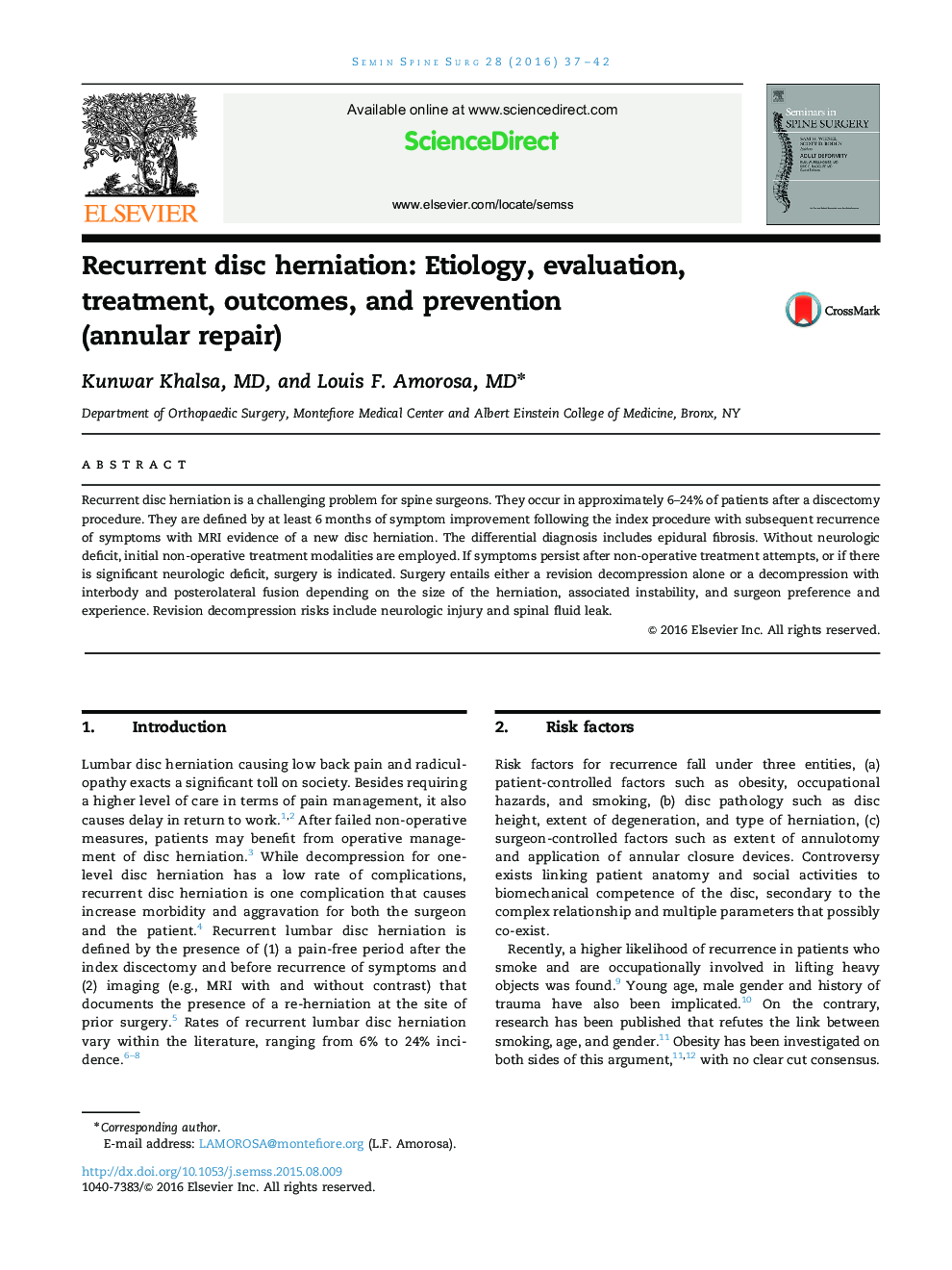| Article ID | Journal | Published Year | Pages | File Type |
|---|---|---|---|---|
| 4094514 | Seminars in Spine Surgery | 2016 | 6 Pages |
Recurrent disc herniation is a challenging problem for spine surgeons. They occur in approximately 6–24% of patients after a discectomy procedure. They are defined by at least 6 months of symptom improvement following the index procedure with subsequent recurrence of symptoms with MRI evidence of a new disc herniation. The differential diagnosis includes epidural fibrosis. Without neurologic deficit, initial non-operative treatment modalities are employed. If symptoms persist after non-operative treatment attempts, or if there is significant neurologic deficit, surgery is indicated. Surgery entails either a revision decompression alone or a decompression with interbody and posterolateral fusion depending on the size of the herniation, associated instability, and surgeon preference and experience. Revision decompression risks include neurologic injury and spinal fluid leak.
